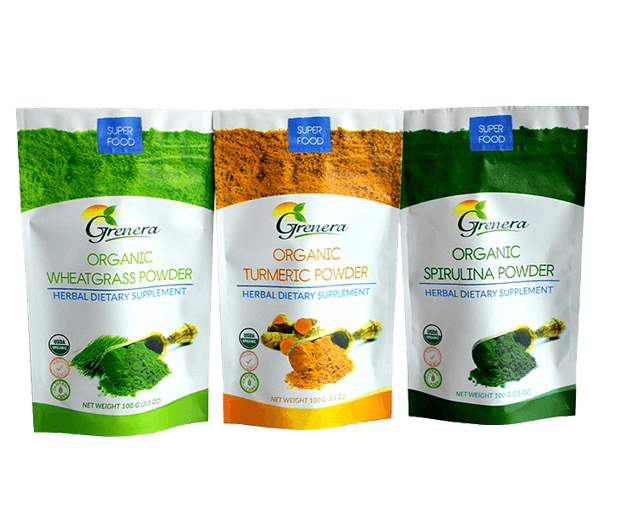With the pandemic, takeout food service is booming, as we've no doubt noticed a rise in interest in organic and vegan foods. Most conventional pesticides; synthetic fertilizers; bioengineering; or ionizing radiation are not used in the production of organic food," according to the USDA. Almost three-quarters of all conventional grocery and chain stores now carry organic products, according to the USDA. In other words, this means that more businesses will offer organic and natural food items as part of their product lines.
Food packaging is more than just a means of transporting a commodity. As a result of its many functions, it advises us how to store and cook food in an environmentally friendly manner, shows barcodes and nutritional information, and protects items throughout shipping, delivery and storage. Food packaging, on the other hand, ends up in garbage bins and landfills where it lasts considerably longer than the things it was designed to hold!
Protecting produce from the many hands that touch it from the field to the shelf can be done through packaging; from farm workers picking the produce to transport it to stores, to employees putting it on the shelves, to other shoppers picking through it in order to find the right produce to purchase. There are no germs or bacteria that may go from the farm to the store because of the packing. Unsurprisingly, economics is the driving force for the use of plastic packaging on a massive scale. Shrinkage, or spoiling in the retail industry's parlance, is a problem for organic vegetables. It avoids one rotting piece of produce from contaminating the rest of the food in the container by wrapping each item individually in plastic.
As the saying goes, "the rotten apple spoils a lot," but this time it's a little more literal. Nonorganic produce cannot be stored next to organic fruit, so that's another benefit of plastic wrapping: it makes it easier for retailers to fill their shelves. Individually wrapped vegetables also prevent dehydration and provide a surface on which the shop can place the UPC code, making it more cost-effective. This reduces waste and speeds up the stocking and check out processes, which saves time and money. Because most grocery store plastic bags are single-use, they end up in the water. As a result, animals end up eating it.
Plastic uses up natural resources as well, and it seldom makes it to the recycling bin. Additives in plastic can alter its strength, flexibility, color, and even its resistance to bacterial growth. In addition to contaminating our food, plastic containers may also pose a threat to our health. Consumers are wondering why there are no labeling laws that require full disclosure of any possible ingredients that may leach from food containers, while we demand full disclosure from food companies.
Bioplastics have been created as an alternative to petroleum-based plastics and to provide packaging materials with increased biodegradability and composability, thereby creating the potential for composting as an option to waste disposal. A compost soil rich in carbon and nutrients may be produced by aerobic waste management systems for biodegradable and compostable bioplastics, unlike traditional petrochemical-based polymers that can't be composted.
In most cases, food is transported to a processing plant from the fields where it was grown. Afterward, it is put away until it is required. Packaging, transportation, and distribution to stores are all part of the process before the product may be purchased and eaten. Depending on where it's grown and how long it's been in someone's fridge or cabinet, this might take anything from a few hours to several days.
Polyethylene terephthalate (PET) packaging is commonly used in food supply chains because it helps keep food fresh for longer and reduces food waste. More than 20 percent of food produced in the EU goes to waste each year, according to a 2016 analysis of studies on food waste. For both the environment and food security, reducing waste is essential.
There is more than 50 percent residential waste and approximately 20 percent of food waste in processing. If we want to limit the amount of trash in these sectors, plastic packaging may be required. When evaluating whether plastic packaging is effective in the food supply chain in terms of food preservation and waste prevention, a variety of criteria must be taken into account.
Customer satisfaction is our main concern. Pkgmaker focuses on customer satisfaction that’s why we always deliver the best service to our customers. It costs less to package organic food with custom labels in the right bag than to use more expensive bags. This means that you can get organic food packaging, like bags or pouches, that is just the right size and shape for your needs. Increase sales by boosting your brand and giving your goods that all-important stand-out quality! For the best in creative packaging, we provide unique branding and decoration. We find the most appropriate eco-friendly containers for your organic foods that are suited for your goods, legal, environmentally beneficial, and cost-efficient. Pkgmaker delivers orders within 7-10 days. Are you worried about the minimum order requirements? Don’t worry, we got your back. There is no minimum order, where you can order one single packet. If you appreciate our customized packaging, choose us to service your company or brand, or choose another option. But we guarantee that we will not let you down. If you are too choosy for your company or brand then you are in the right place. We have in-house professional designers to customize as you need. So, give us that opportunity to deliver your company the best ever packaging you can ever get.

















